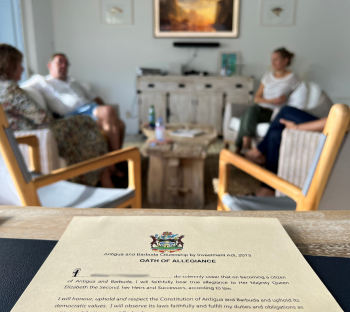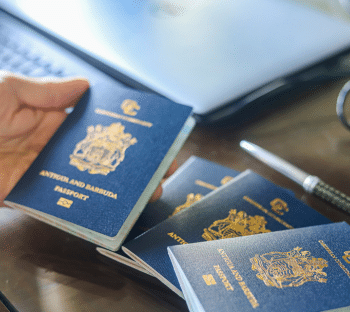Five Caribbean countries have already started working together on mutually agreed 6 principles for their respective citizenship by investment programs.
Leaders from Antigua and Barbuda, Dominica, Grenada, St Kitts and Nevis, and Saint Lucia have demonstrated a strong commitment to adhering to these principles, working diligently towards their full implementation by the beginning of June 2023. This proactive approach showcases their dedication to creating a more robust and reliable environment for citizenship investors, while also promoting regional collaboration and harmonization with international partners.
What are the main challenges?
While the implementation of five of the six principles for CBI programs is expected to proceed relatively smoothly, the sixth principle poses significant challenges.
Time differences
This principle requires conducting interviews with applicants, either in-person or virtually. The main difficulty arises from the wide geographic spread of applicants from countries and regions such as India, China, the Middle East, Sri Lanka, and Europe, leading to substantial time differences reaching up to nine hours or more. The significant difference in time zones poses a challenge when scheduling interviews, as the daytime in the Caribbean often aligns with nighttime or evening hours in the Asian region. This discrepancy makes it difficult to find mutually convenient timings for both parties involved.
The language barrier
The language barrier presents a significant obstacle in implementing the sixth principle of the Caribbean CBI (Citizenship by Investment) programme. A considerable number of applicants do not speak English, which poses difficulties during the interview process. To address this issue, it is estimated that a minimum of 20 language professionals will be required to assist with communication during the interviews.
What are the 6 principles?
Collective Agreement on Treatment of Denials:
The countries collectively agreed not to process applications from individuals whose CBI submissions have been denied in another participating jurisdiction. This measure aims to prevent the exploitation of potential loopholes in the system and strengthen the integrity and security of their programs. To enforce this principle, the nations committed to sharing information on denials, promoting transparency and cooperation among jurisdictions.
Interviews:
The importance of conducting interviews with CBI applicants, either virtually or in person, was acknowledged. This principle aims to improve the due diligence process and assess the eligibility and intentions of prospective investors. By directly communicating with applicants, authorities can evaluate their backgrounds, motivations, and program suitability. Implementing interviews ensures a more comprehensive assessment, contributing to the long-term sustainability and integrity of the schemes.
Additional Checks:
The third principle involves performing additional checks on each CBI application by involving the respective Financial Intelligence Units (FIUs). This measure strengthens the scrutiny of applicants and mitigates potential financial risks associated with the programs. Engaging FIUs helps identify money laundering, terrorism financing, and other illicit financial activities tied to prospective investors, ensuring that only those meeting high standards of integrity and financial compliance are granted citizenship.
Audits:
Regular audits of the CBI programs were established as a critical principle. Each country committed to conducting audits annually or biennially, ensuring transparency, credibility, and effectiveness. Audits help identify areas for improvement, ensure compliance with regulations, and detect vulnerabilities or irregularities.
Retrieval of Passports:
Enlisting law enforcement assistance in retrieving revoked or recalled passports issued under the CBI programs was emphasized. This principle promotes a coordinated approach to prevent individuals with revoked citizenship from exploiting the benefits. Collaboration with law enforcement agencies mitigates risks of unauthorized travel, illegal entry, and other security concerns associated with the misuse of revoked or recalled passports.
Treatment of Russians and Belarusians:
The meeting addressed the treatment of CBI applications from Russian and Belarusian nationals, resulting in the suspension of processing applications from these countries. Four jurisdictions had already implemented this suspension, while Grenada committed to suspending new applications from these countries as of March 31, 2023, despite previously applying enhanced due diligence.
To sum up… The proactive and collaborative efforts demonstrated by Eastern Caribbean states highlight their commitment to enhancing the integrity, security, and transparency of their CBI schemes. The adoption and implementation of these six principles, including denials, interviews, additional checks involving FIUs, audits, retrieval of passports, and the treatment of Russian and Belarusian applicants, contribute to a more reliable environment for citizenship investors.
By working together, sharing information, conducting audits, and suspending applications when necessary, these states strengthen their individual CBI programs while harmonizing and enhancing the credibility of the entire region’s offerings. These collaborative efforts solidify their position to face challenges and maintain trust within the international community and potential investors in their CBI schemes.


